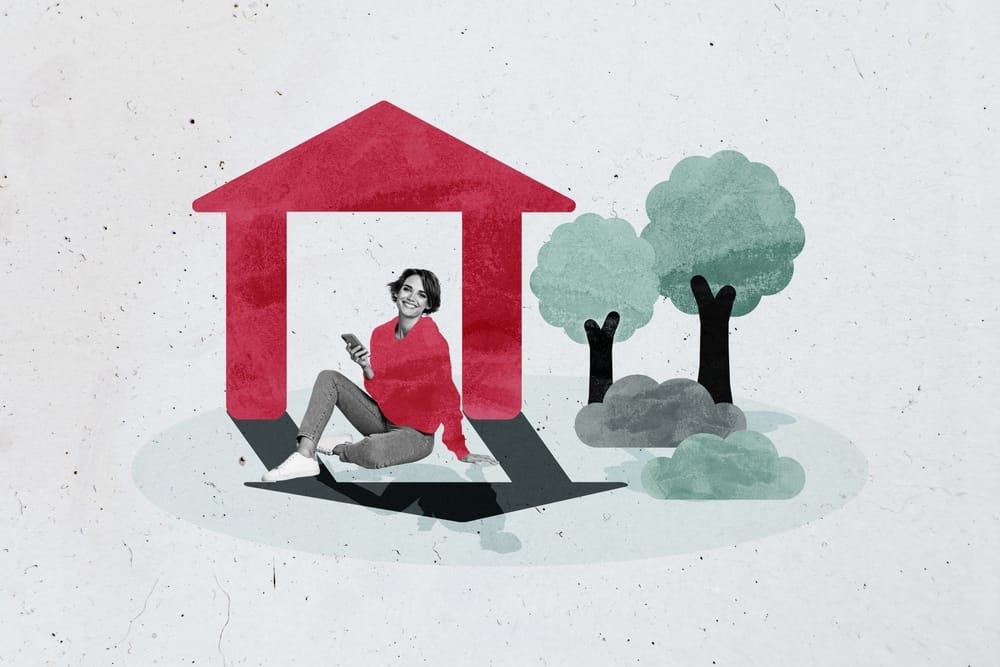Trust This.
By Joseph E. Seagle, Esq.
👋 Happy Friday! Today is National Seat Belt Day, sponsored by Uber.
❗Situation Awareness: I’ll be speaking at the Sarasota REIA meeting at 11:30 a.m. on November 19 at the Der Dutchman in Sarasota.
1 big thing: The arguments for a 50-year mortgage

The Trump administration’s push to explore a 50-year fixed-rate mortgage has ignited debate nationwide. But in Florida — where home prices keep climbing and population growth refuses to cool — the idea could unlock new opportunities for buyers, practice owners, and entrepreneurs looking to enter or stay competitive in the housing market.
Lower payments, bigger reach
Stretching home loans from 30 to 50 years meaningfully reduces monthly payments. HousingWire’s analysis shows that at a $400,000 loan and a 6.57% rate, the monthly payment drops from about $2,038 to $1,822 when extended to 50 years. That’s not a revolution — but it’s enough to pull thousands of Floridians across the qualification line.
For professionals whose income is stable but not skyrocketing (think physicians building practices, lawyers early in their careers, small-business owners scaling up), lower payments improve debt-to-income ratios and expand borrowing power in pricier markets like Miami, Orlando, Tampa, and Naples.
Opening doors for first-time buyers
Homeownership has drifted out of reach for younger Floridians. A longer amortization schedule gives them a realistic way back into the market.
Florida’s rapid in-migration keeps competition intense. A 50-year mortgage could help first-time buyers compete with institutional investors and cash buyers without relying on risky adjustable-rate loans.
Predictability and stability: Unlike exotic loan products that fueled the 2008 crash, the 50-year mortgage keeps the predictable charm of a fixed interest rate. No balloon payments. No surprise resets. Just lower monthly costs stretched over more time — a trade-off many buyers may prefer in a high-price, high-rate environment.
The structure could also offer entrepreneurs and practice owners greater financial stability, freeing up monthly cash flow for business growth, staff expansion, or capital investment.
Florida’s strategic upside
If legislators and regulators eventually approve the product, Florida could see:
More transaction volume in stalled markets
Increased mobility for families trapped by high monthly payments
Greater stability for small businesses whose owners rely on predictable home-budgeting
And because homestead protections in Florida are among the strongest in the country, turning more renters into homeowners delivers long-term financial security to everyday residents.
The bottom line:
A 50-year mortgage won’t fix Florida’s housing shortage — but it could make today’s market more accessible. Lower monthly payments, expanded buying power, and predictable fixed-rate financing give Florida’s professionals and entrepreneurs more flexibility in a market that rarely offers any.
2. The argument against a 50-year mortgage

The Trump administration’s consideration of a 50-year fixed-rate mortgage is stirring skepticism across the housing industry — and the concerns land especially hard in Florida, where affordability issues stem more from tight supply and high prices than from loan structure alone.
Slow equity, long-term debt
While a 50-year mortgage trims monthly payments, it dramatically slows equity growth. HousingWire’s analysis shows the payment difference between a 40-year and 50-year loan becomes minimal — but the long-term interest burden becomes massive .
For Florida buyers — particularly professionals banking on equity for future moves, refinances, or retirement planning — a slower path to ownership wealth could be a major setback.
Experts warn: This doesn’t fix the real problem
Economists quoted by POLITICO called the plan a “band-aid” and a “distraction” from the real crisis: years of underbuilding and stubborn supply shortages.
Newsweek highlights that critics fear it could inflate prices further, since lower monthly payments may simply encourage buyers to bid more — exacerbating inflation rather than solving affordability.
Others have compared it to the automobile lending market where the typical 3-year car loan has been stretched out as far as 8-years in some cases, driving up the price of cars, reducing equity to negative numbers when the car is repossessed, and leaving borrowers on the hook for deficiency judgments. Fear is that similar scenarios would happen in housing.
Florida, with its investor-heavy markets, is especially susceptible: any bump in purchasing power risks being absorbed instantly by price hikes.
Legal and regulatory roadblocks
Under the Dodd-Frank Qualified Mortgage rule, anything beyond a 30-year term is prohibited. Both 40-year and 50-year mortgages are currently illegal for conventional underwriting. Undoing that rule requires a major regulatory overhaul or congressional action.
For Florida lenders, real-estate attorneys, and brokers, this means the proposal is speculative — and even if approved, implementation would be slow and messy.
Higher lifetime cost and consumer-risk concerns
A longer term doesn’t just stretch debt — it multiplies it. Over 50 years, homeowners could pay hundreds of thousands more in interest.
That’s drawing concern from consumer advocates and some mortgage analysts, including HousingWire’s Logan Mohtashami, who argues the product would “subsidize demand,” delay needed market correction, and “prevent the healing process” of price normalization .
Florida’s market could get stickier
Longer mortgage terms can reduce turnover. In a state already facing record-low inventory, extending homeowner lifespans in properties could choke the market even further. Fewer listings mean tighter supply, higher prices and more competition — the opposite of the intended effect.
Florida investors may also hesitate: slower amortization means weaker leverage and longer exposure to downside risk.
Bottom line:
A 50-year mortgage may look like an affordability hack, but the structural risks — slower equity, higher lifetime cost, potential price inflation and severe regulatory hurdles — make it a tough sell for Florida’s already-strained market.
It may ease payments today, but it could make the long-term math far worse.
Advertisement:
Home insurance rates up by 76% in some states
Over the last 6 years, home insurance rates have increased by up to 76% in some states. Between inflation, costlier repairs, and extreme weather, premiums are climbing fast – but that doesn’t mean you have to overpay. Many homeowners are saving hundreds a year by switching providers. Check out Money’s home insurance tool to compare companies and see if you can save.
3. How to use AI to save money on lawyer bills

Legal fees can feel like an unpredictable drain — especially for small business owners and Florida families. Artificial intelligence (AI) tools can help you organize, draft, review, and learn before calling your lawyer, saving hundreds or even thousands in billable hours.
Why it matters:
Generative AI tools like ChatGPT can now summarize contracts, draft letters, leases, loan documents, contracts, and explain legal terms in plain English. But the real money-saver is knowing how to prompt them effectively — like asking the AI to “act as a board-certified Florida trial attorney” and “summarize this lease as if you’re advising a small business owner.”
Key takeaways:
Draft before you delegate: Use AI to prepare letters, contracts, and summaries before paying your lawyer to refine them.
Organize the paperwork: AI can sort your contracts, find deadlines, and highlight missing clauses.
Study first: Learn the legal basics with AI so your paid time with a lawyer is focused on strategy, not vocabulary.
Prompt wisely: The better your prompt, the better your output — always specify the role, location, and task you want AI to perform.
Review and generate: Upload contracts, leases, or other legal documents that you received from your lawyer or the other party and ask it to review them, summarize them, find terms that are unfavorable or unfair to you, and suggest revisions before sending it all to your lawyer to do the same thing.
Don’t DIY the law: AI is powerful but not licensed; a Florida lawyer must review anything you plan to sign or file.
Bottom line:
Let AI handle the grunt work and let your lawyer handle the judgment. Used smartly, AI turns $300/hour tasks into $0/hour prep work.
Go Deeper at AspireLegal.com
4. Best anti-aging drug? Always growing

Heard a great (as usual) talk from Chris Voss, the author of “Never Split the Difference,” one of the best books on negotiating skills out there.
This week I was treated to a live talk from Shark Tank’s Robert Herjavec. He explained that most people chase youth through creams, supplements, or surgery. But the real anti-aging secret? Growth. A mind in motion defies the clock far better than any serum ever could.
Why it works: The human brain thrives on novelty and challenge. When you learn something new, set a bold goal, or step outside your comfort zone, you spark neuroplasticity—the brain’s ability to rewire and stay sharp. Constant growth literally keeps your mind younger.
The danger of comfort: Routine might feel safe, but it quietly dulls your edge. When you stop seeking challenge, you stop adapting—and stagnation is just aging in disguise.
3 growth habits for long-term vitality:
Set meaningful Rocks. Borrow from EOS: define quarterly goals that stretch you and your team just beyond your comfort zone. Growth comes from tension, not ease.
Feed your curiosity. Read books outside your industry, listen to podcasts that challenge your assumptions, or spend time with people from different generations and backgrounds. Curiosity keeps your worldview—and your neurons—flexible.
Do one uncomfortable thing each week. Have that tough conversation, take the cold plunge, learn the skill you’ve avoided. The best kind of discomfort signals expansion, not fear.
The big picture: Youth isn’t a biological state—it’s an attitude. The moment you stop growing, you start aging in the ways that matter most: mentally, emotionally, spiritually. Keep learning, keep building, keep becoming.
Bottom line: Growth is the real fountain of youth. Stay curious. Stay challenged. Stay young.
We hope you found this helpful — any feedback is appreciated and can be shared by hitting reply or using the feedback feature below.
Was this email forwarded to you? Subscribe here.
Have an idea or issue to share? Email us.
Connect with us using your preferred social media and website links for MyLandTrustee and Aspire Legal Solutions.
Our mailing address: PO Box 547945, Orlando, FL 32854-7945
Our physical address: 1901 West Colonial Drive, First Floor, Orlando, FL 32804
Be on the lookout for our next issue! 👋

